Regular exercise can dramatically improve your sleep quality as you age. Just 150 minutes of weekly physical activity helps reduce nighttime awakenings and increases deep sleep. Aerobic activities like walking boost sleep quality, while resistance training offers even greater benefits. Morning or afternoon workouts best reset your sleep-wake cycle. You don’t need to accept poor sleep as an inevitable part of aging—the right exercise routine could transform your nights completely.
The Science Behind Age-Related Sleep Changes
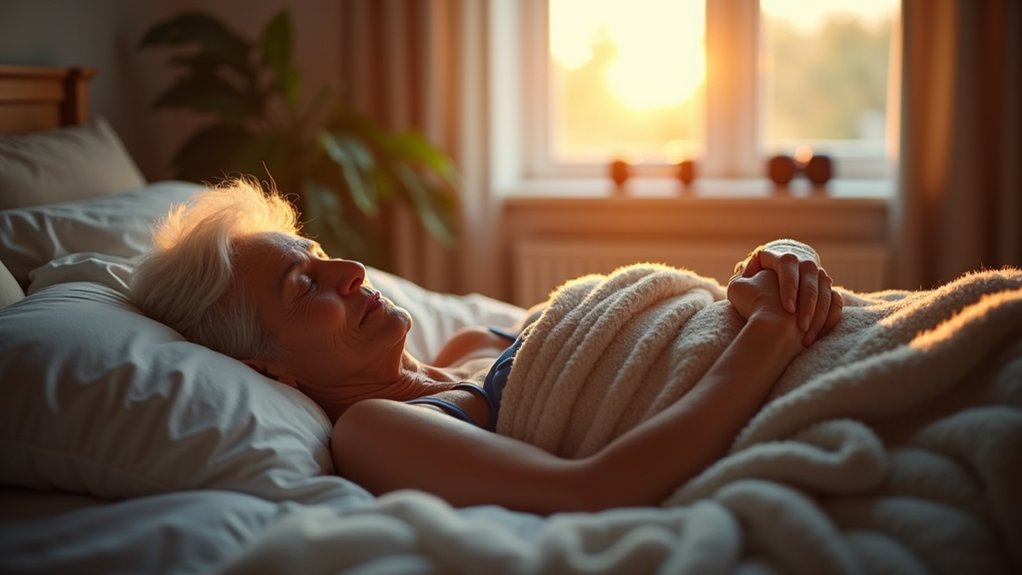
While many associate aging with inevitable sleep problems, understanding the physiological changes behind this shift can help you address them effectively. As you age from 20 to 70, your sleep duration typically decreases by about 1.5 hours, considerably altering your sleep patterns.
For older adults, fragmented sleep becomes common—waking 3-4 times nightly and struggling to return to sleep.
You’ll experience less deep sleep, which impacts cognitive function and overall sleep quality. This isn’t simply inconvenience; research shows that neuron loss affecting sleep regulation contributes to these disruptions.
Breaking the Myth: Poor Sleep Isn’t Normal in Aging
Despite these biological changes, you shouldn’t accept poor sleep as an inevitable part of aging. Nearly half of older adults mistakenly believe that sleep deterioration is normal, yet research clearly shows otherwise.
While up to 20% of seniors experience insomnia, these sleep disturbances can be effectively addressed.
Poor sleep isn’t just about feeling tired—it impairs cognitive function and increases your risk for serious conditions like heart disease and diabetes. When you experience disrupted sleep, your ability to focus, consolidate memories, and maintain overall health suffers.
The good news? Proactive measures like regular exercise can greatly improve sleep quality. By incorporating physical activity into your routine, you’re not just accepting age-related changes—you’re actively countering them, protecting your cognitive abilities and reducing health risks associated with poor sleep.
Exercise as a Natural Sleep Aid for Seniors
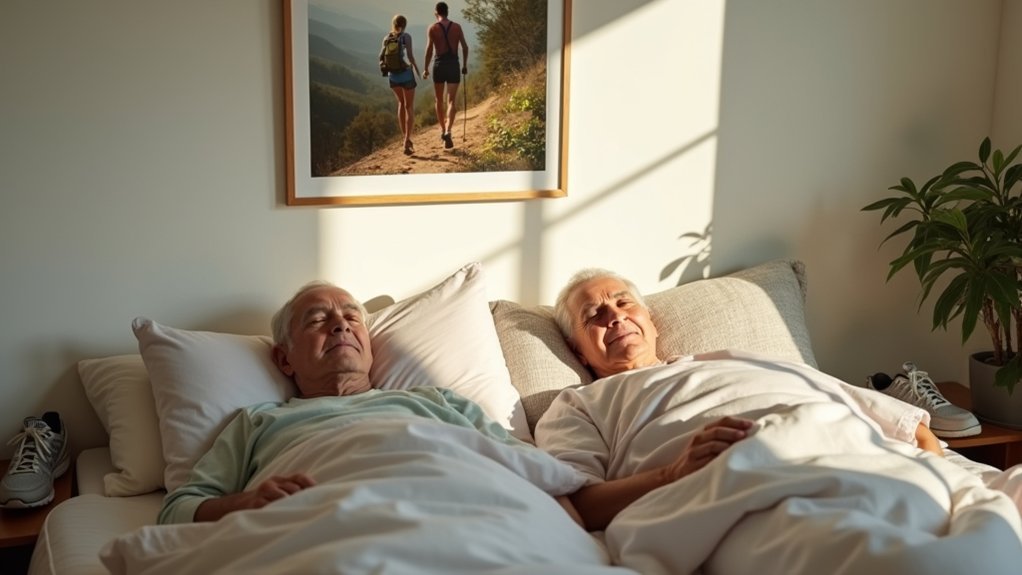
When it comes to improving sleep quality as you age, exercise stands as one of the most effective natural remedies available. Research shows that just 150 minutes of physical activity weekly can transform how you sleep, with resistance training alone reducing Pittsburgh Sleep Quality Index scores by 5.75 points.
| Exercise Type | Sleep Benefits for Older Adults |
|---|---|
| Aerobic | Increases deep sleep duration |
| Resistance | Reduces insomnia symptoms |
| Daily Activity | Decreases sleep fragmentation |
| Morning Walks | Improves sleep efficiency |
| Strength Training | Enhances overall sleep quality |
Nearly half of older adults struggle with sleep issues, but regular exercise offers a powerful non-pharmacological solution. Beyond better sleep, staying active contributes to improved overall health and reduced risk of chronic conditions.
Optimal Exercise Types and Timing for Better Sleep
Finding the right exercise routine can dramatically improve your sleep quality as you age. Research shows that committing to at least 150 minutes of moderate-intensity exercise weekly yields significant benefits for older adults struggling with sleep issues.
Aerobic activities like walking and swimming can boost your sleep quality by 4.35 points on the Pittsburgh Sleep Quality Index, while resistance training offers even greater improvements—up to 5.75 points.
Don’t overlook balance and flexibility exercises, which prevent falls while enhancing sleep.
Timing matters too. Schedule your physical activity in the morning or afternoon to effectively reset your sleep-wake cycle and promote better sleep hygiene.
This consistent approach helps combat insomnia symptoms and reduces risks associated with sleep disorders, making exercise an essential component of your sleep health strategy.
Building a Sustainable Physical Activity Routine for Lasting Sleep Benefits
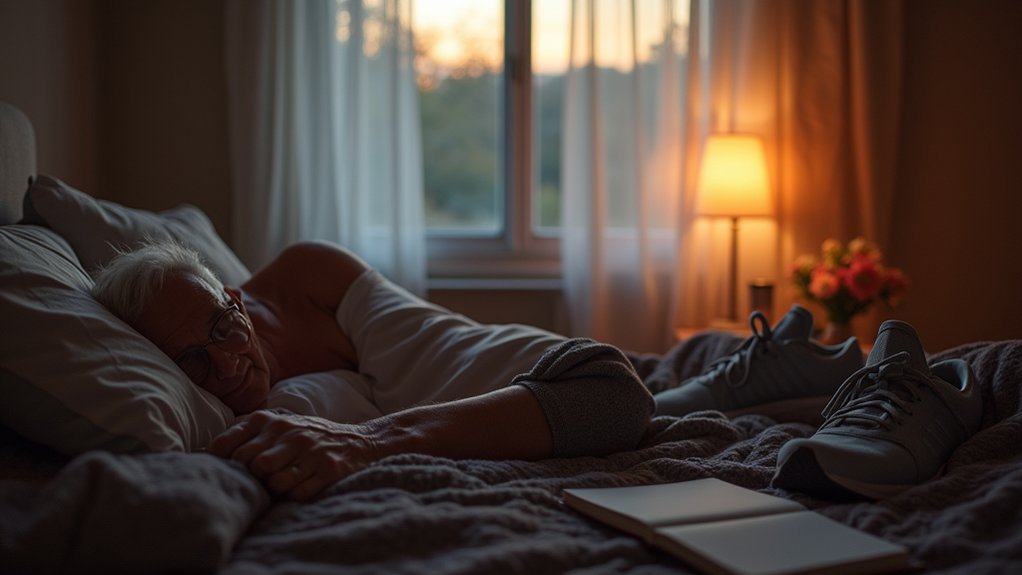
Creating a sustainable exercise habit represents the true challenge for most older adults seeking better sleep. To maintain lasting benefits, you’ll need to commit to at least 150 minutes of moderate-intensity activity weekly, combining both aerobic and resistance training exercises for ideal sleep quality.
Consistency matters—research shows sleep improvements may diminish if you don’t maintain your physical activity routine. Consider scheduling morning or afternoon sessions to reset your sleep-wake cycle, and whenever possible, exercise outdoors to gain additional benefits from natural sunlight exposure.
Balance exercises should also be part of your regimen, serving the dual purpose of enhancing sleep while preventing falls.
Remember that resistance training has shown the most substantial sleep benefits for older adults, making it a vital component of any sustainable routine designed for better health and rest.
Frequently Asked Questions
Can Regular Exercise Improve Quality of Sleep in Older Adults?
Yes, regular exercise can greatly improve your sleep quality as an older adult. You’ll experience better sleep duration, fewer disturbances, and reduced risk of health issues linked to poor sleep.
How to Reduce Exercise-Induced Insomnia?
To reduce exercise-induced insomnia, you’ll benefit from moderate workouts earlier in the day, gradually increasing intensity, and adding post-exercise relaxation techniques. Maintain a consistent schedule and avoid vigorous activity before bedtime.
How Does Exercising Improve Sleep?
Exercise improves your sleep by regulating your sleep-wake cycle, reducing sleep fragmentation, and increasing deep sleep phases. You’ll experience less insomnia, better sleep quality, and won’t need sleep medications as much.
How to Improve Sleep in Older Adults?
To improve sleep in older adults, you’ll benefit from 150 minutes of weekly exercise, including morning workouts, resistance training, and balance exercises. Maintain a consistent sleep schedule and limit evening screen time.
In Summary
You don’t have to accept poor sleep as an inevitable part of aging. Regular exercise can dramatically improve your sleep quality, whether you’re walking, swimming, or practicing yoga. Start with just 10 minutes daily and gradually increase your activity. By making movement a consistent part of your routine, you’ll transform not just your nights but your overall quality of life.


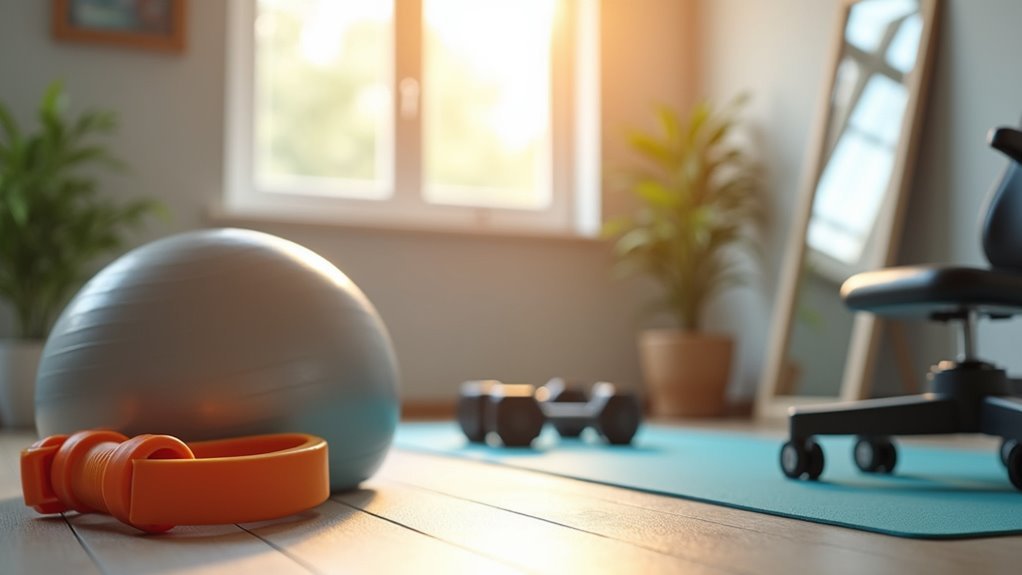
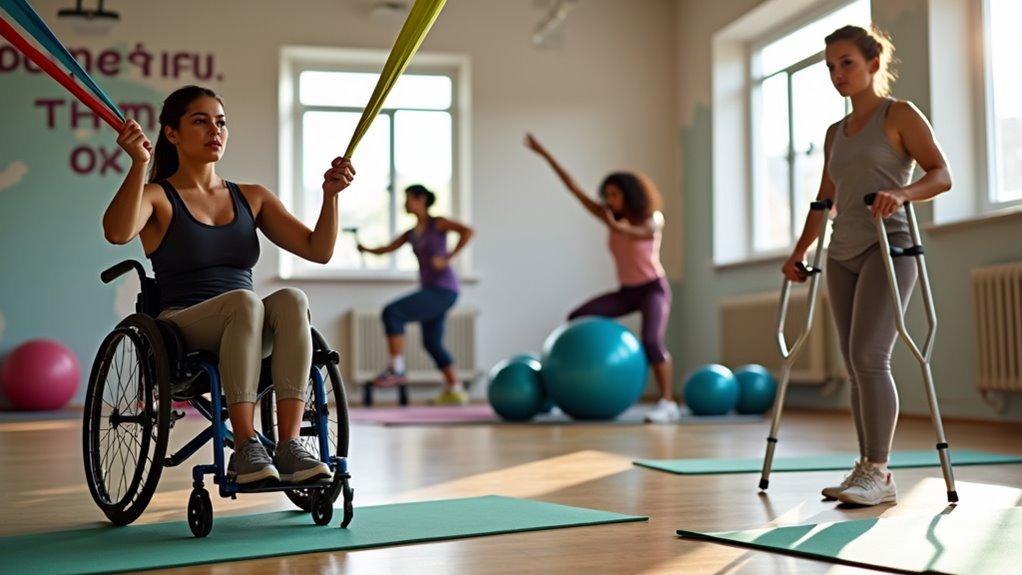
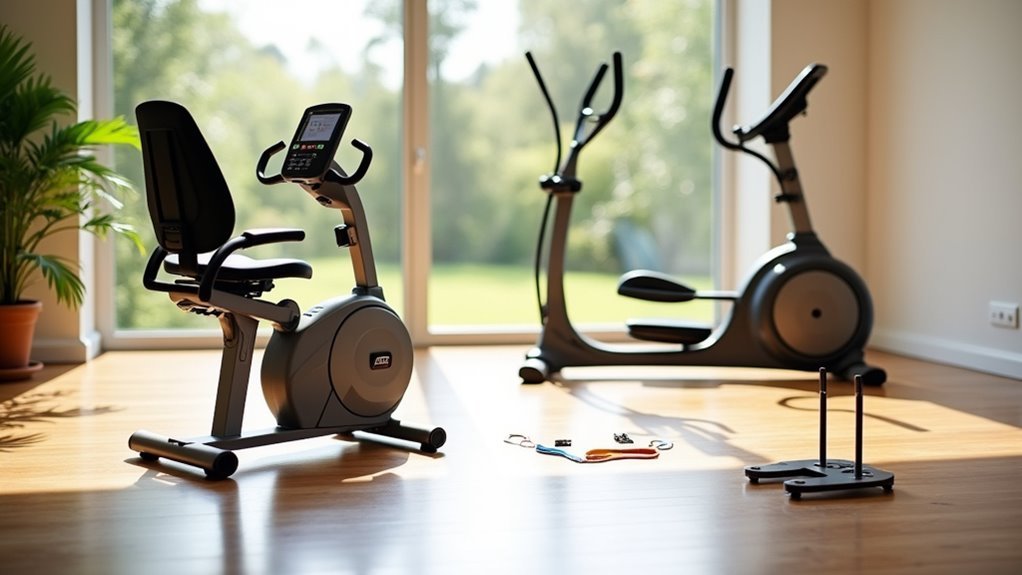
Leave a Reply